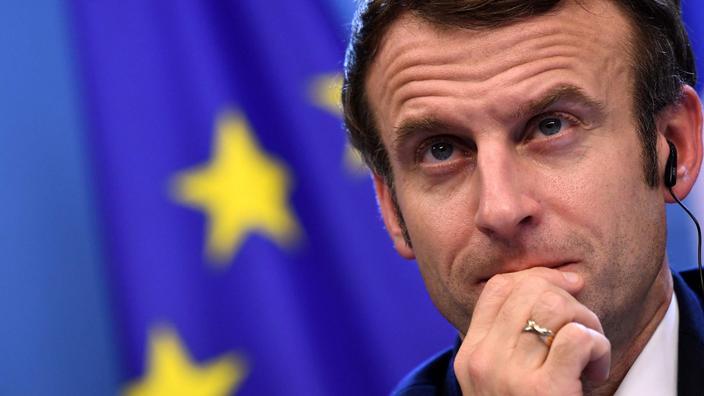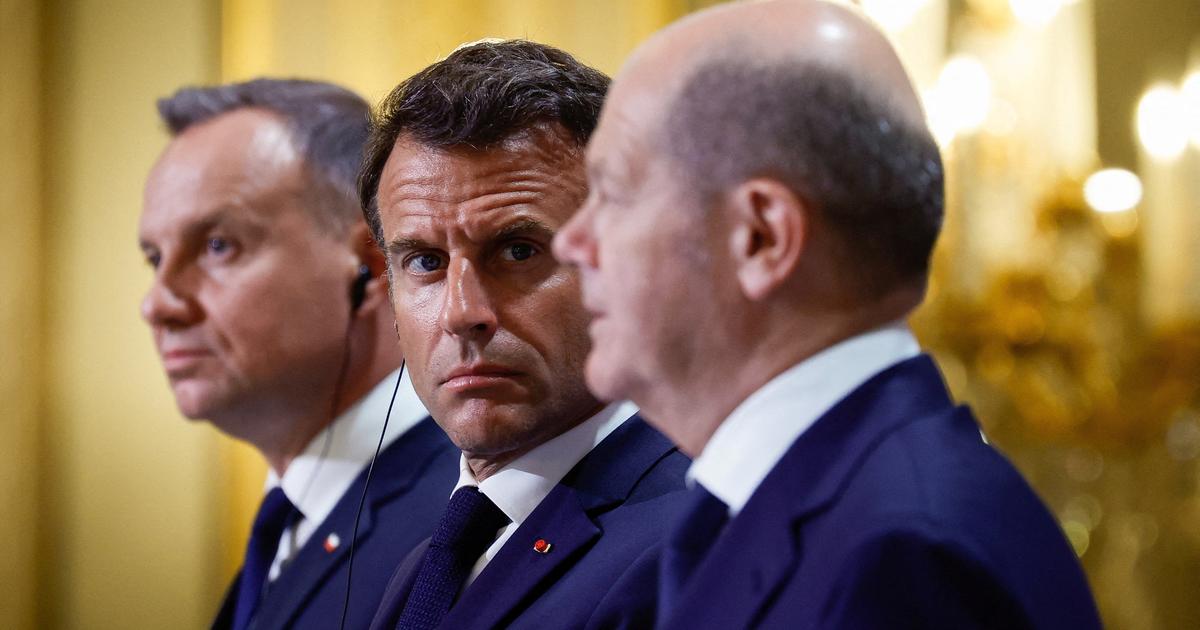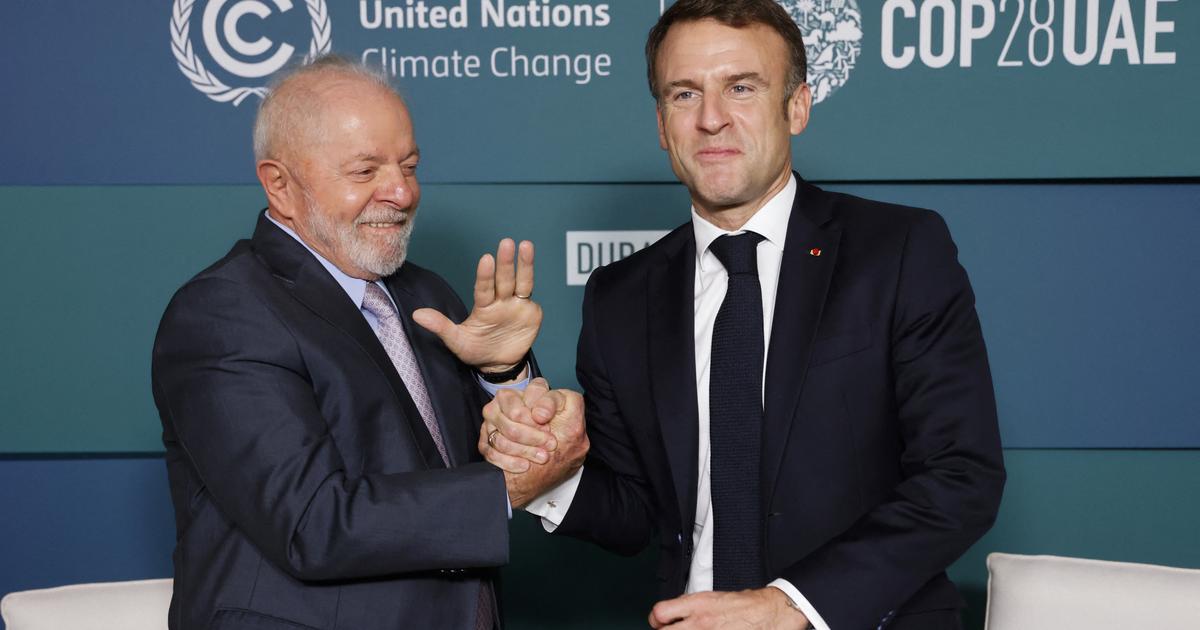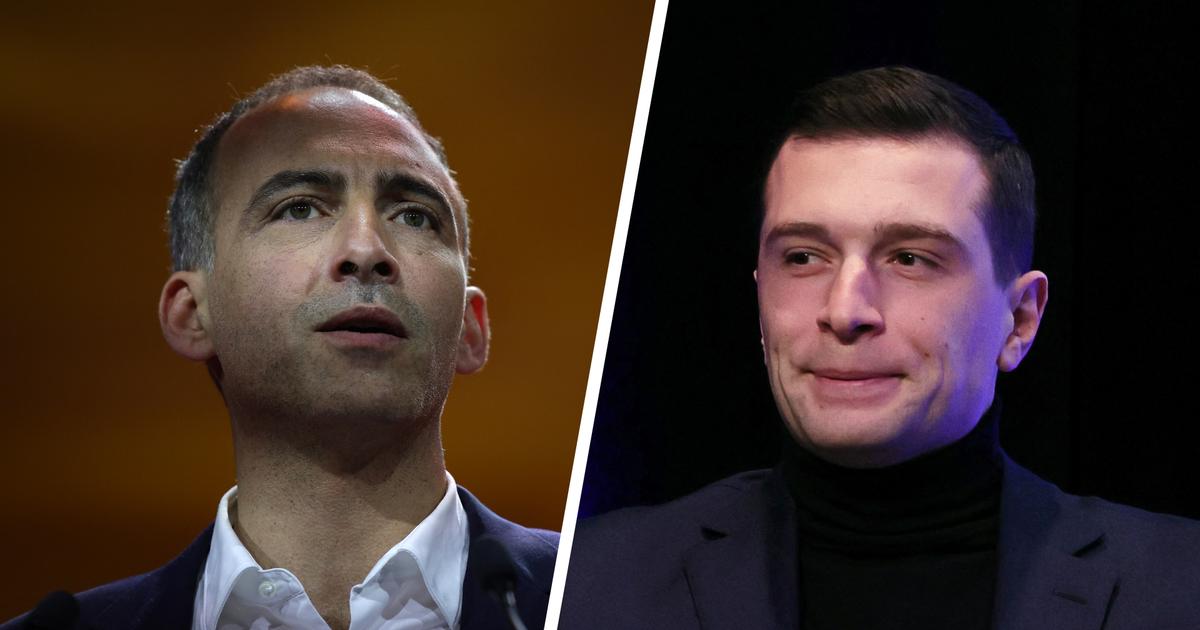David Cayla is an economist, lecturer at the University of Angers and a member of the organization of the dismayed economists. He is the author, with Coralie Delaume, of
The End of the European Union
(Michalon, 2017) and of
10 + 1 Questions on the European Union
(Michalon, 2019).
His latest work is
Populism and Neoliberalism
(De Boeck Supérieur 2020).
What a godsend! A few months away from a presidential election, what better way for a convinced European than to approach the electoral deadline as “President of Europe”? In a few days, France will assume the rotating presidency of the Council of the European Union. This mandate, which lasts only six months and is transmitted in turn between the 27 Member States, will be the opportunity for Emmanuel Macron to combine the functions of candidate, President of the Republic and, therefore, President of the EU. A coincidence of the European calendar.
In fact, calling Emmanuel Macron president of the EU is an abuse of language. It is the government, and more precisely Jean-Yves Le Drian, Minister of Foreign Affairs, who will formally chair the Council and not the French President. Moreover, the function no longer has the importance that is attributed to it. Since the entry into force of the Lisbon Treaty, the President of the European Council - which brings together Heads of State and Government and which should not be confused with the Council of the EU - is no longer assured by the rotating chair. It is the Belgian Charles Michel who occupies this function today. Finally, since 2007, the presidency of the EU has been held by a triplet, which means that there are in reality three states, France,Sweden and the Czech Republic, which will coordinate the presidencies for the next 18 months. France, being the first actor of the triplet, will have the advantage of launching the initiatives, but it will be necessary for it to come to an agreement with the leaders of two other countries whose interests are far from being aligned with the his.
The European Union is a heavy machine.
The power is so dispersed there that it becomes difficult, even for a specialist, to navigate.
David Cayla
The European Union is a heavy machine.
The power is so dispersed there that it becomes difficult, even for a specialist, to navigate.
In the days of the Soviet Union, there were Sovietologists in the West to anticipate and analyze the often opaque and complex processes by which decisions were made.
Today, we would need
Brussels
experts to untangle the web of power relations that prevail within the EU.
Let us dare an attempt at clarification. The long time, that of the files which build the EU on the merits, is in the hands of the Commission and the little-known Court of Justice (CJEU) whose judgments often facilitate, sometimes hinder, the work of the said Commission. The short time, that of reacting to current events, of crisis management, is rather devolved to the European Council, which has gained in importance during the public debt crisis and that of the Covid-19. Finally, the function of the rotating EU presidency is to organize the meetings of the 27 ministers on specific issues, in coordination with the other European authorities. In short, the role that France will play in the coming months will be that of a facilitator.His presidency will be a success if it manages to make concrete progress in the implementation of reforms, most of which were on the cards for the Commission.
Hosting work meetings and the next European summit on its soil is, however, more than a symbol. It is also an opportunity to play politics and influence, to be better heard by your partners, to maintain personal relations more easily with the leaders of other countries and those in charge of European institutions. For Macron, it will also be an opportunity to forge special ties with Olaf Scholz, the newly elected German Chancellor.
So, and to summarize, Emmanuel Macron will chair the EU jointly with Jean-Yves Le Drian, in partnership with the leaders of Sweden and the Czech Republic, by partnering with the President of the Council Charles Michel, to advance certain files of the Commission chaired by Ursula von der Leyen, in compliance with the legal framework defined by the CJEU while seeking to forge a privileged partnership with Germany.
And that, of course, if the European Parliament agrees and if the Member States let it happen.
For Macron, this presidency will above all be the occasion of a communication campaign.
David Cayla
It goes without saying that for Macron this presidency will above all be the occasion of a communication campaign. There is no doubt that it will display a foolproof voluntarism which will be all the more convincing as none of the files pushed by France will reach its conclusion by April. It will therefore be a voluntarism of paper and discourse, like the famous initiative of the Sorbonne, this two-hour speech addressed to European leaders and which resulted in practically nothing, other than the creation of the “Collège du intelligence in Europe ”which hardly anyone has heard of despite the fact that it is supposed to embody the strategic independence of Europe in intelligence and thatit includes our British friends who have just left the EU and whose loyalty we know when it comes to sharing information. Short.
So let's be proactive and imagine that France is seizing this opportunity to move forward on two projects put forward by the Élysée: the European minimum wage and the carbon tax at the borders. To obtain the agreement of its partners, France will have to be particularly convincing as the implementation of these proposals is likely to offend the interests of both sides. The countries of central and eastern Europe have nothing to gain from social harmonization which can only penalize them economically; exporting countries, for their part, have everything to lose from a tax that risks disrupting the rules of international trade.
Bad luck, the two countries which co-chair with France the triplet of the next 18 months are in one and the other of these categories. It is therefore to be feared that France will have to curb its ambitions. The European minimum wage, if implemented, will likely be indexed to the median wage of each country and, above all, risk not exceeding the level of 50% of the median wage, i.e. a level well below the French minimum wage. . Such a reform, not only would not make it possible to converge socially but would in fact introduce a new standard which will make the French minimum wage appear to be well above the European threshold. This will be an argument not to increase it, or even to reform it by removing its automatic indexation to inflation and workers' wages.
As for the carbon tax at the borders, it will come up against German interests whose electricity production is still very carbon-intensive and whose main trading partner is China. Poland, which is on the way to becoming the continent's other industrial power and which massively uses coal to produce its electricity, will also be very hostile to it. In addition, it is not at all certain that Sweden and the Czech Republic will agree to make the border carbon tax one of their priorities. Finally, such a measure could be attacked at the WTO and lead to retaliation for the whole of Europe.
Taking environmental damage into account in trade policies when social rights do not figure there would, no doubt, be a hell of a revolution.
But Macron has little other argument than his exalted word and his status of "champion of the Earth" to convince.
There is no real “European” recovery plan but 27 national recovery plans financed with European funds.
David Cayla
In any negotiation, we need pressure tactics. However, the latest European developments have taken some of these resources away from the European institutions. Indeed, even if it is hardly noticed by the press, the last years have been marked by a partial re-nationalization of EU policies. This is visible in the reduction of the European budget whose negotiations, which mingled with those of the recovery plan, resulted in the sanctuary of discounts in favor of so-called "frugal" countries. But it is above all visible in the way in which European funds are now spent. The Common Agricultural Policy (CAP), which remains the EU's largest budget, is partly “nationalized”, ie part of the CAP budget is now managed at national level.The same principle prevails for the recovery plan. If the envelope of each country was defined during the negotiations, the way of spending this envelope is the responsibility of the States. In other words, there is no real “European” recovery plan but 27 national recovery plans financed with European funds.
To read also Jean-Éric Schoettl: "Why so much aggression against the decision of the Polish constitutional court?"
With this new doctrine, the EU validates a posteriori the spending decided by the States.
This way of spending European funds is problematic for anyone who wants to “politicize” the EU and convince recalcitrant countries to agree to its reforms.
This is how Poland, despite being in open conflict with the European authorities, continues to benefit from funds from Brussels without fearing the pressures exerted on it in the name of the independence of the judiciary and the preservation of fundamental rights. .
The hope officially cherished by Emmanuel Macron to transform the European Union into a political and sovereign power appears more and more like an idea of the past. The European Union is moving in exactly the opposite direction. To avoid managing conflicts, and under the influence of its neoliberal tropism, its political institutions are gradually losing influence and power in favor of a bureaucratic mode of management. The European institutions are becoming stunted, limiting their capacity for action and gradually transforming themselves into administrative authorities whose role is reduced to monitoring the application of rules, to enacting standards and to playing the arbitrator between the often contradictory interests of States. . This Europe will never be a power; it will never be the United States ofEurope that the “founding fathers” could dream of. It is an entity which limits the power of action of national governments by increasing the standards in all fields, rather than solidarity, performance and environmental issues, but which also limits its own capacity to act in a discretionary manner in order to to ease tensions within it, thereby depriving it of any means of pressure which would make it possible to obtain somewhat ambitious agreements on new projects.reduce tensions within it, thereby depriving it of any means of pressure which would make it possible to obtain somewhat ambitious agreements on new projects.reduce tensions within it, thereby depriving it of any means of pressure which would make it possible to obtain somewhat ambitious agreements on new projects.
Macron, in short, is the alliance of emphatic speech and triumphant bureaucracy.
David Cayla
It is true that this Europe is not necessarily to displease the President. The administration from which he comes and from which he masters the smallest codes is his element. Its governments have, moreover, pushed the bureaucratization of French society to an unprecedented level. From the establishment of Parcoursup at the University to the establishment of derogatory certificates during periods of confinement, the bureaucratic imagination that France has shown since 2017 can only arouse admiration. But let us note that this taste for formalism and procedures has never prevented Emmanuel Macron from telling great stories about the Jupiterian presidency or about sovereign Europe. Emmanuel Macron, in short, is the alliance of emphatic speech and triumphant bureaucracy.Which qualifies him, no doubt, to become a perfect leader of Europe as it is.







/cloudfront-eu-central-1.images.arcpublishing.com/prisa/JNAMK37HFIZKML76SWBTDTD3QI.jpg)

